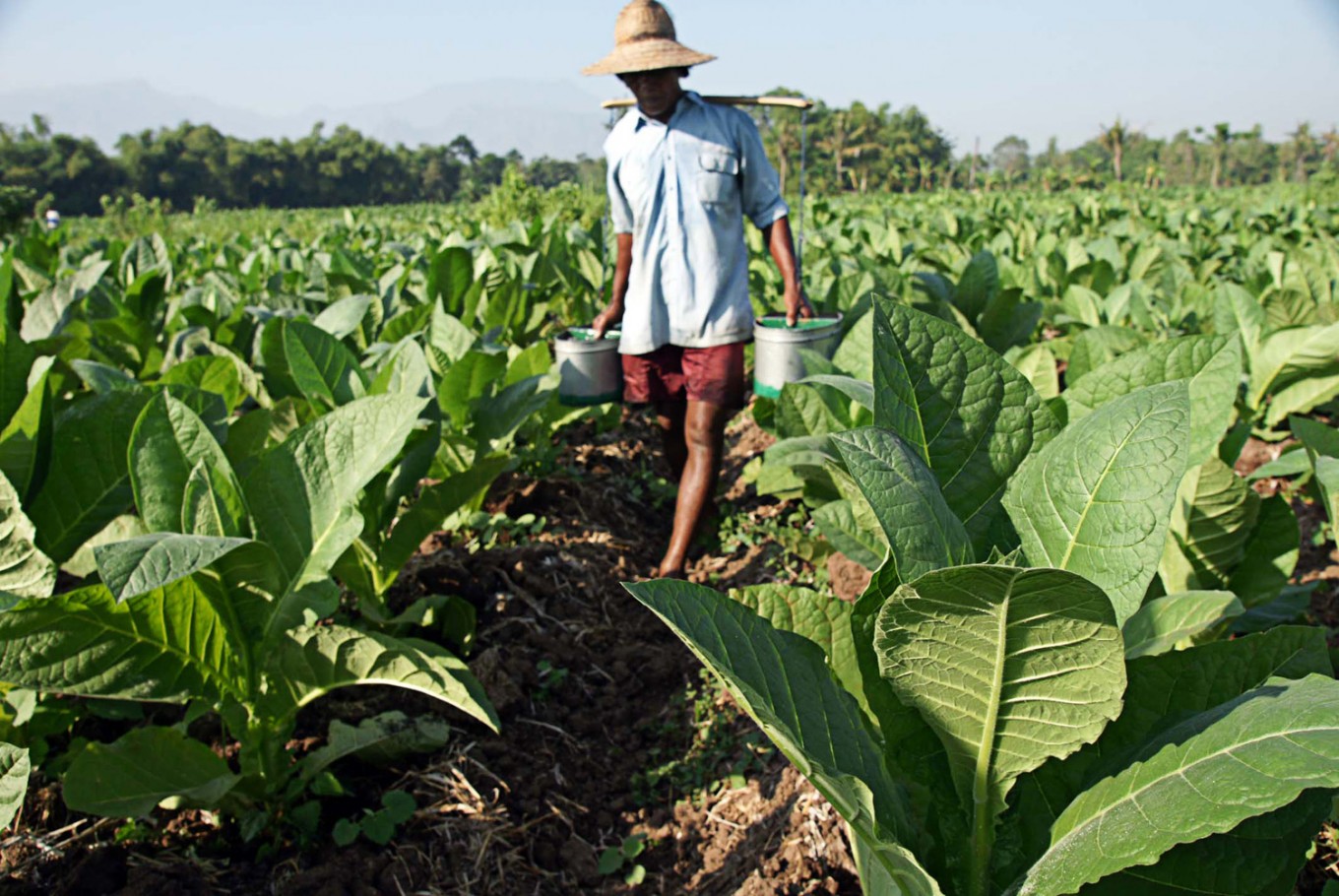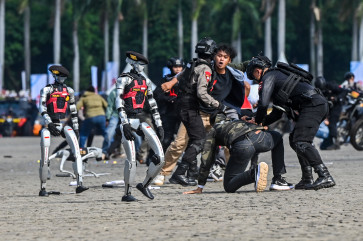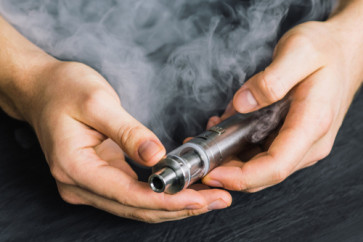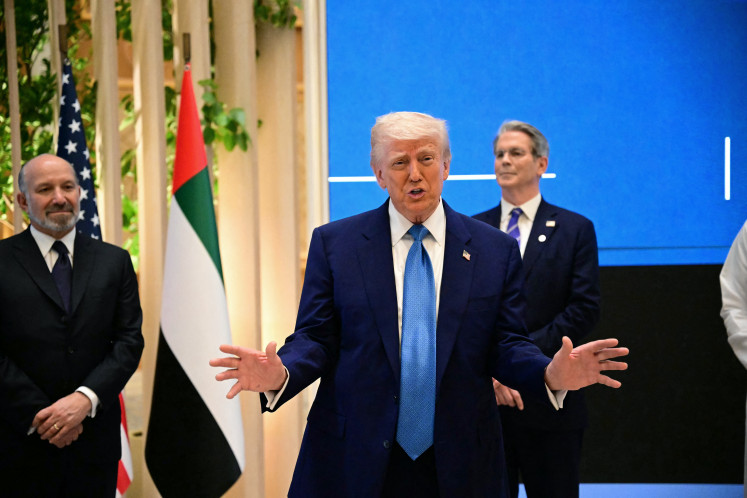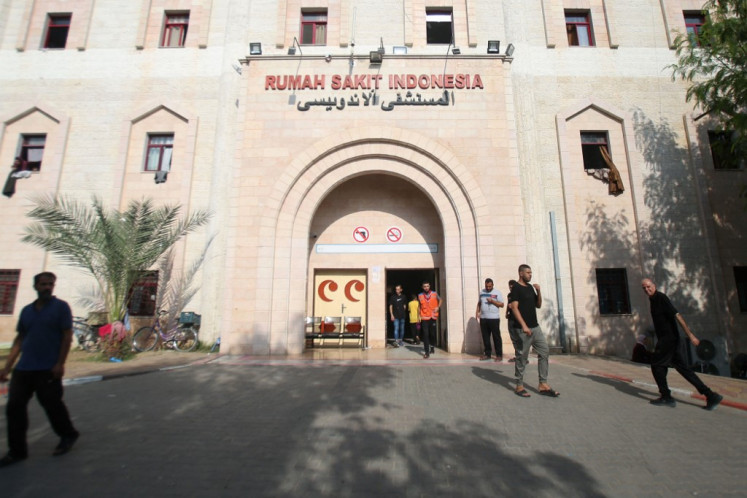Popular Reads
Top Results
Can't find what you're looking for?
View all search resultsPopular Reads
Top Results
Can't find what you're looking for?
View all search resultsE. Java rejects foreign intervention in tobacco industry
Change text size
Gift Premium Articles
to Anyone
G
rowing pressure from foreign NGOs demanding Indonesia immediately ratify the Framework Convention on Tobacco Control (FCTC) has been met with strong resistance from East Java Governor Soekarwo.
Soekarwo asked foreign NGOs not to intervene in matters related to tobacco farming and product manufacturing in Indonesia, including East Java.
“No, no. It has nothing to do with those NGOs. Tobacco is the livelihood of East Java’s people. Why do they have to dictate how we handle our tobacco affairs? I don’t like it. Mind your own business,” Soekarwo said last week in Surabaya, East Java.
The governor’s insistence on rejecting the intervention of both foreign and domestic NGOs in tobacco affairs cannot be separated from the fact that tobacco accounts for 26.3 percent of plantation products in East Java. The province has around 108,000 hectares of tobacco plantations, 55 percent of the total tobacco fields in Indonesia.
Soekarwo said East Java had a close relationship with Indonesia’s tobacco product manufacturing industry as it employed around 600,000 workers, who would be affected if the government ratified the FCTC.
A similar sentiment was conveyed by tobacco manufacturers in Indonesia. They wrote a joint letter expressing their concerns over the sustainability of the tobacco industry in Indonesia to President Joko “Jokowi” Widodo at the end of May. They outlined their concerns that the government would bow to growing pressure from NGOs on immediately ratifying the FCTC.
Cigarette manufacturing association Paguyuban Mitra Pelinting Sigaret Indonesia (MPSI) chairman Djoko Wahyudi said one of the requirements stipulated in the FCTC was the prohibition of additional materials, including cloves, in cigarettes, though 95 percent of cigarettes in Indonesia are kretek (clove cigarettes).
“The FCTC will kill kretek, a genuine Indonesian product. We hope and call on the Indonesian government to stay committed to protecting the national tobacco manufacturing industry as a whole, which comprises tobacco farmers, workers and industrial players,” said Djoko.
He said the MPSI employed more than 40,000 workers across Indonesia.
Djoko said the FCTC was part of a hidden agenda from foreign parties to kill Indonesia’s tobacco manufacturing industry, which more than 6 million Indonesian people depend on for their livelihoods. The tobacco industry contributed Rp 173.9 trillion (US$12.91 billion) to tax revenues in 2015, making it the third-largest tax contributor in the country.
Djoko said the government had channeled Rp 2.79 trillion of incentive funding through the Tobacco Revenue Sharing Fund (DBHCT) for tobacco producing regencies in 16 provinces in 2015. The amount was slightly higher than the funds allocated in the previous year, which reached Rp 2.78 trillion.
With 39 regencies and municipalities, East Java received Rp 1.43 trillion, the largest portion at 51.25 percent of the total DBHCT allocated in 2015. Central Java ranked second with Rp 633.38 billion, followed by West Java with Rp 318.59 billion.
 Livelihoods – Female workers select dried tobacco leaves. East Java's governor has claimed the ratification of the FCTC would affect the livelihoods of the province's people, many of whom depend on tobacco to make a living.(thejakartapost.com/Wahyoe Boediwardhana)
Livelihoods – Female workers select dried tobacco leaves. East Java's governor has claimed the ratification of the FCTC would affect the livelihoods of the province's people, many of whom depend on tobacco to make a living.(thejakartapost.com/Wahyoe Boediwardhana)
Echoing Djoko’s opinion, Indonesian Tobacco Growers Association (APTI) chairman Soeseno said he supported Soekarwo’s move to reject the FCTC ratification because it contained several excessive regulations that could kill the tobacco industry in Indonesia.
Soeseno said among the regulations required for countries that ratified the FCTC were the mandatory implementation of plain packaging, which included a total prohibition on logos and branding on cigarette packs; the prohibition of cigarette advertisements, promotion and sponsorship; the prohibition of shops and stores displaying tobacco products; tobacco land restrictions and tobacco farmland conversion; and a prohibition on the government interacting with tobacco industry stakeholders.
“If Indonesia ratifies the FCTS, we will have to convert our tobacco plantations to other commodities; this will threaten the prosperity of around 2 million farmers and millions of tobacco workers in Indonesia,” said Soeseno, claiming there was no other commodity that could provide greater profits for farmers.
Currently, 180 countries have become parties in the signing, ratification and accession of the FCTC. Indonesia, together with several other countries such as the US and Switzerland, is not yet a party to the convention. (ebf)

